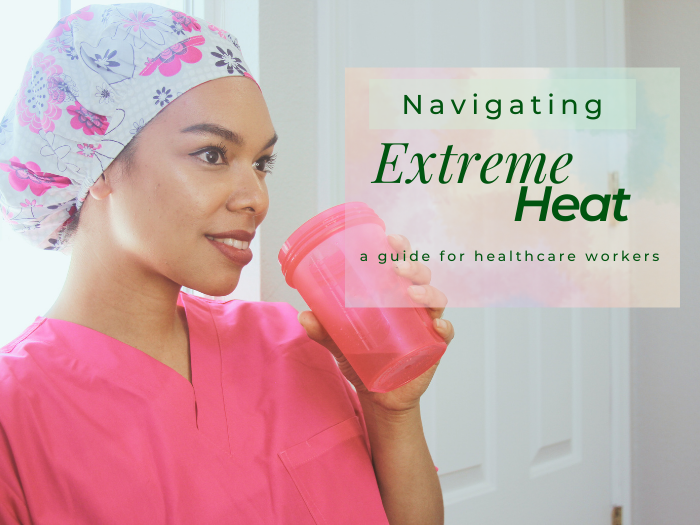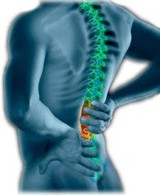Navigating Extreme Heat: A Guide for Healthcare Workers
As the mercury rises and heatwaves become more frequent, the effects of extreme heat on our health cannot be ignored. Healthcare workers, who are at the forefront of patient care, need to be acutely aware of the potential risks associated with prolonged spells of scorching temperatures. With temperatures soaring above 100 degrees for extended periods, staying cool and hydrated is not just a matter of comfort – it's a critical aspect of maintaining your well-being. In this blog, we'll delve into why healthcare workers must understand the effects of heat and share essential tips to help you combat the heat wave and care for yourself while caring for others.
The Impact of Prolonged Heat Exposure
Prolonged exposure to extreme heat can have severe consequences for both physical and mental health. Healthcare workers are often so focused on their patients that they might neglect their own well-being. But understanding the risks is the first step towards prevention. Heat-related illnesses, such as heat exhaustion and heatstroke, can lead to dehydration, fatigue, dizziness, confusion, and in extreme cases, organ damage and even death. These conditions can impair your ability to provide high-quality care to your patients.
Tips for Staying Cool and Hydrated
- Stay Hydrated: Drink water regularly, even if you're not feeling thirsty. Avoid excessive caffeine, sugary drinks and alcohol as they can contribute to dehydration. Keep a reusable water bottle handy and aim to sip water throughout your shift.
- Dress Appropriately: Opt for lightweight, loose fitting and light-colored clothing that wicks away sweat.
- Take Breaks: Regularly step into cooler environments during your breaks. Find a cool, shaded spot to rest and recharge. Even a short break can help your body recover from the heat.
- Use Cooling Accessories: Consider using cooling towels, fans, and personal misting devices to help lower your body temperature.
- Avoid Direct Sun Exposure: If possible, limit direct exposure to the sun during peak hours, usually from 10 a.m. to 4 p.m. If you need to go outside, wear a wide-brimmed hat and sunglasses.
- Nutrition Matters: Consume foods with high water content, such as fruits (watermelon, grapes, and oranges) and vegetables (cucumbers, lettuce, and celery). These foods help hydrate your body naturally.
- Monitor Your Body: Pay attention to signs of heat-related illness in yourself, your patients and your colleagues. If you or someone else is showing symptoms like excessive sweating, nausea, confusion, or a rapid heart rate, take immediate action.
Be aware of the following factors that reduce body's ability to respond to extreme heat:
- Age: Older adults are more susceptible to heat-related illnesses because their bodies don't cool down as effectively as younger people.
- Medical conditions: People with certain medical conditions, such as heart disease, diabetes, and obesity, are also more susceptible to heat-related illnesses.
- Medications: Some medications, such as diuretics and beta-blockers, can interfere with the body's ability to cool down. While healthcare workers are dedicated to the well-being of their patients, it's crucial to prioritize self-care, especially during prolonged spells of extreme heat.
By understanding the effects of heat and taking proactive steps to stay cool and hydrated, healthcare professionals can continue to provide the highest quality care while safeguarding their own health. Remember, in the challenging world of healthcare, taking care of yourself is not just a luxury – it's a necessity. Stay cool, stay hydrated, and stay safe!
At Green Scrubs, we believe looking good and feeling good go hand in hand. Providing awesome surgical hats may be our passion but keeping this community of health care heroes safe and informed is our inspiration. We will continue to offer news and tips in the hope that they give some clarity and guidance.
Recent Posts
-
Lower Back Pain in Nurses: Causes, Treatment, and Prevention
Nurses are at a high risk of developing low back pain (LBP) due to the physical demands of their job
-
Dealing with Alzheimer's Disease as a Health Care Worker and protecting yourself from the onset of Alzheimer's
Alzheimer's disease is a progressive brain disorder that causes memory loss and other cognitive decl



